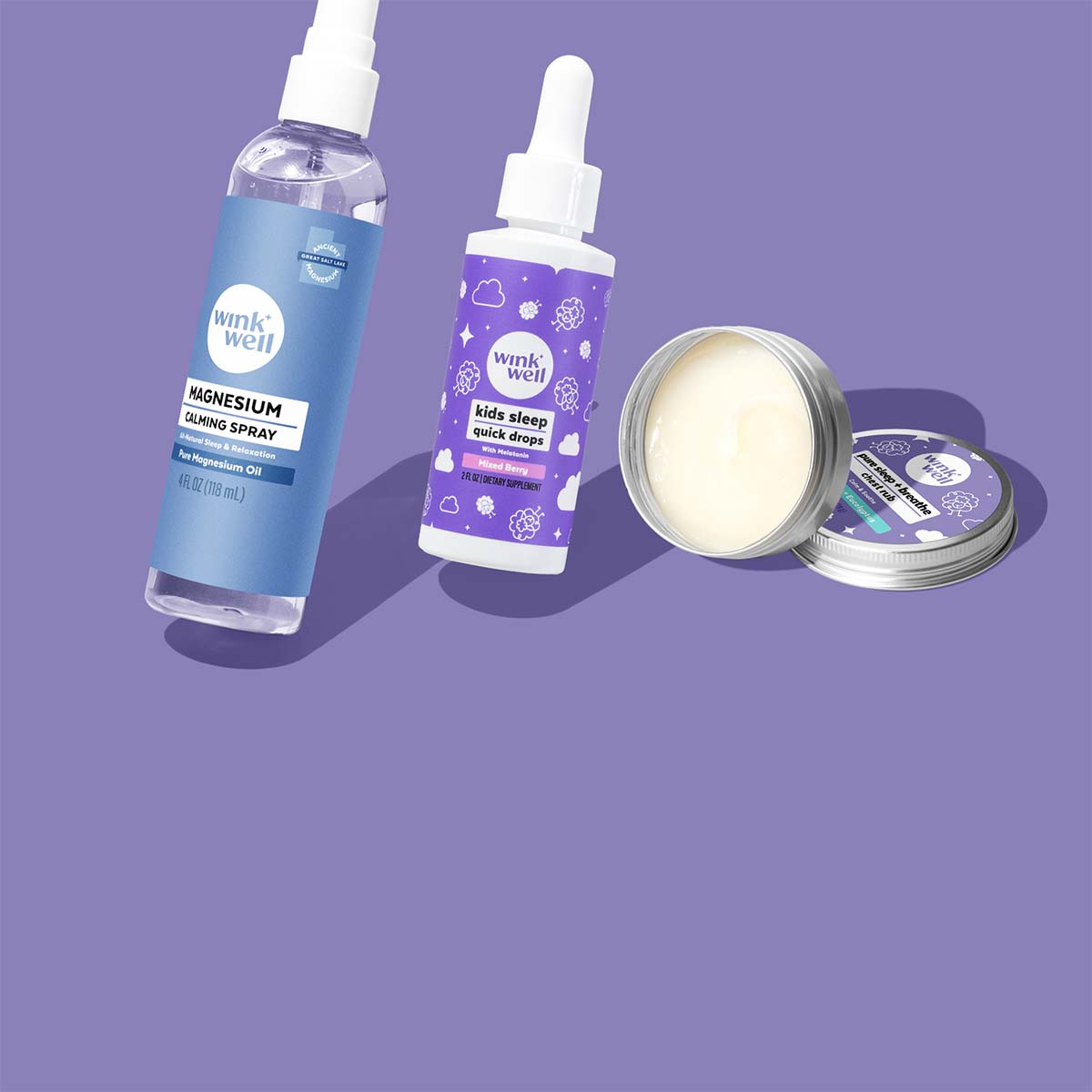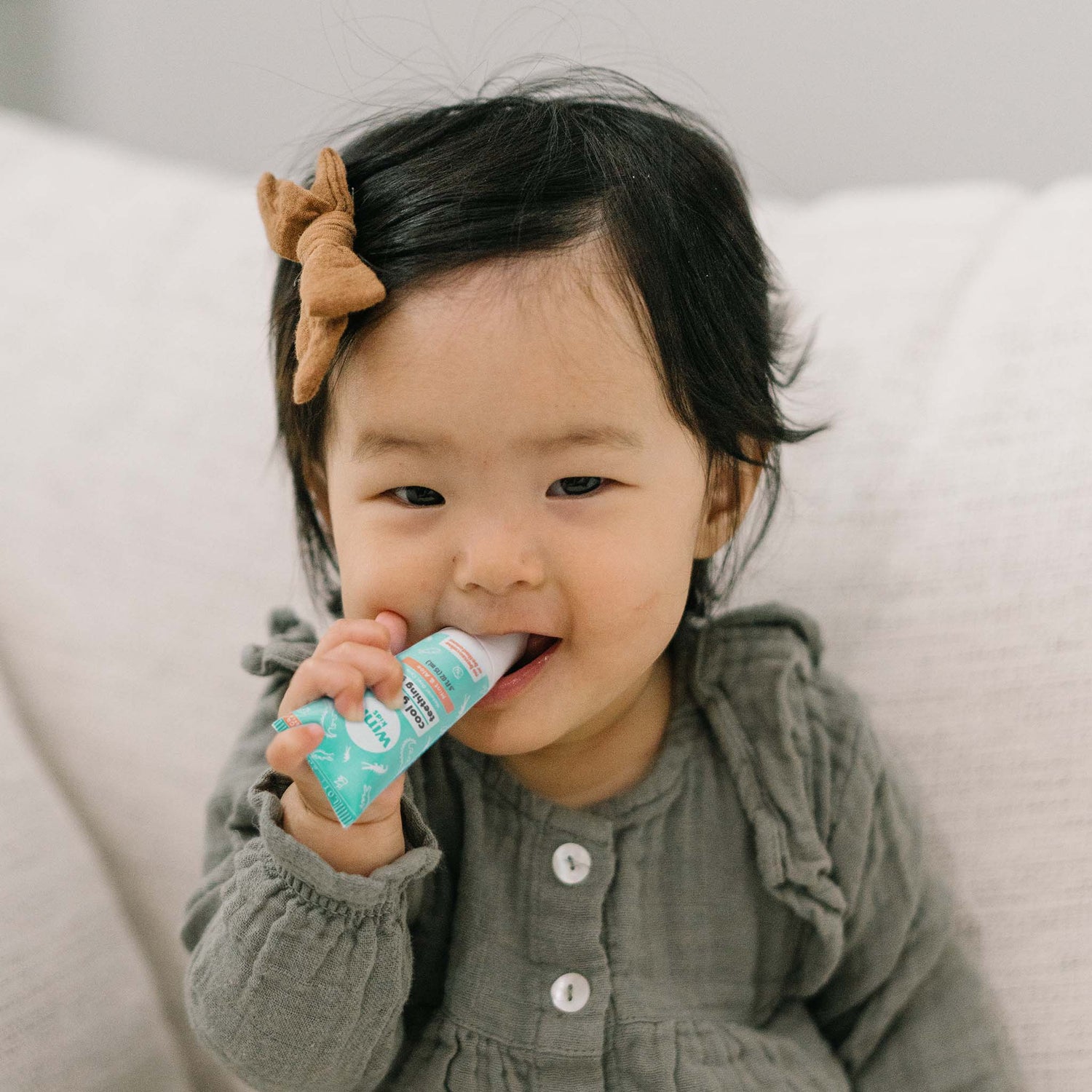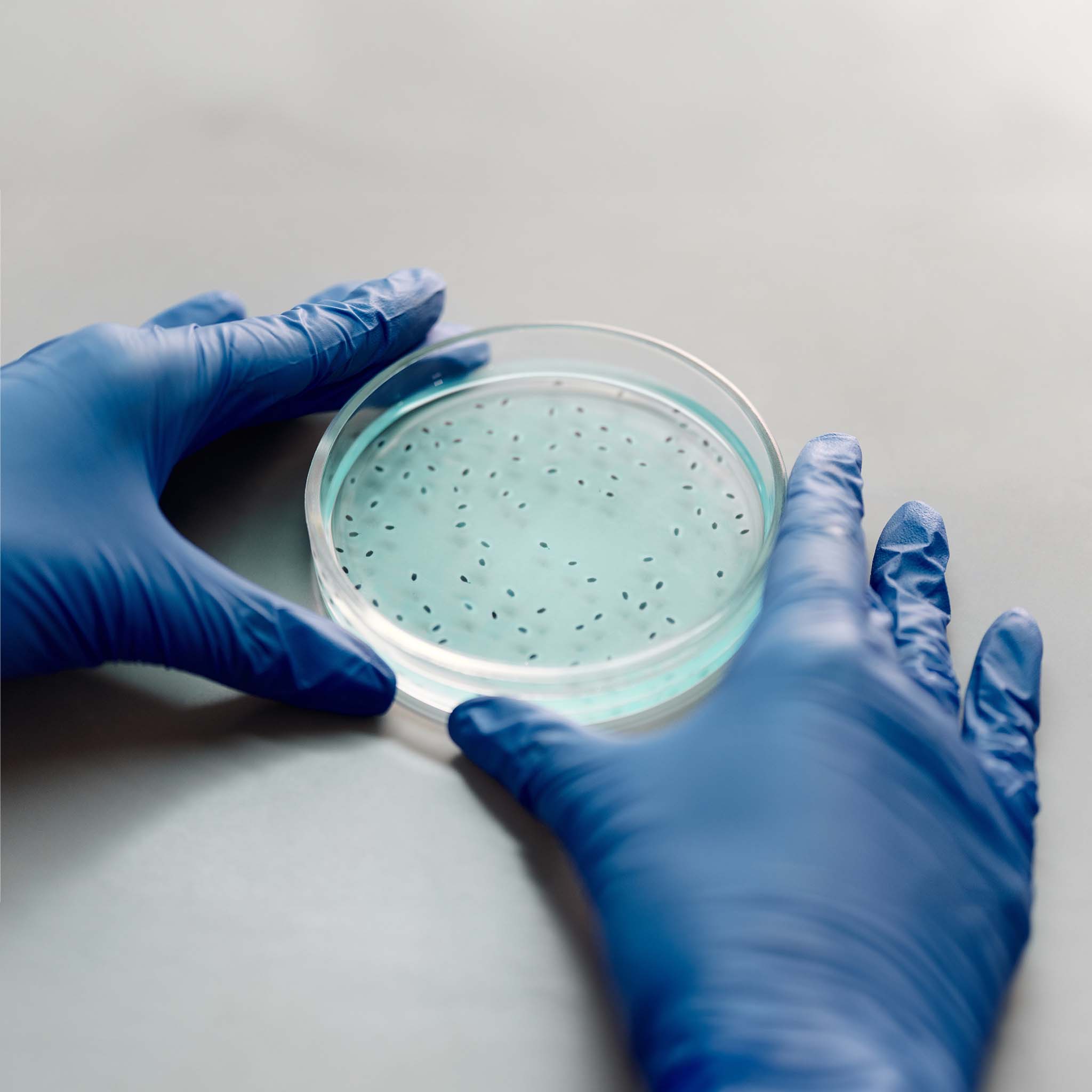Written by Chelsea Spooner,
Now that you have read the 7 Steps in our prior blog post, let's answer some frequently asked questions surrounding teething.
1. Is it normal for my child to have a fever when they are teething?
- No! Not always. It is easy to blame lots of symptoms your child is experiencing on teething. However, studies done by American Academy of Pediatrics have shown that the teething process may cause a slight elevation in body temperature, 98-99, it’s not enough to spike a fever. A body temperature of 100.4 degrees or above means something else is going on. Teething babies love to put things in their mouths, so it’s easy for them to get sick hence the fever.
2. When will teeth start coming in?
- Many babies who are between the ages of 4 and 6 months experience their first tooth popping through. However, it is possible that teething happens sooner, in fact some infants are born with one or more teeth called “natal teeth.” Take a look at this chart to get a good idea of an average timeline. (insert graphic porter made)
3. Should I worry if my child doesn’t have teeth by 4 or even 6 months?
- Nope! Children who don’t have a tooth right at 4 months of age are not behind. It is important to remember all babies are on their own timeline. Your baby's teeth already started forming under the gumline before birth but may come out as late as 12 months. If your child doesn’t have any teeth by 16-18 months you should consult a pediatric dentist.

4. Do teeth randomly come in?
- This is a common misconception, but teeth do actually follow a certain sequence and are usually in pairs. (see graphic in question 2) While not all children will follow this schedule exactly, it is nothing to worry about if you notice teeth appearing out of order.
5. I heard taking kids to the dentist before they have adult teeth is pointless. Is that true?
- Not true! Parents may not see the benefits of taking a child to the dentist before all teeth are in but it is recommended to see a dentist after that first tooth erupts or by the age of 1. This visit can help the dentist be sure their teeth are developing properly. Most early visits will be considered “fun” visits to help ease into the act of seeing a dentist regularly every 6 months.
6. I bought a teething product on the market that says it is safe for kids, can I trust it?
- Sadly, no! Companies may add filler ingredients to their products, not ensure safety or use materials not suited for infants. They can also have excessive sugar-laden sweeteners and may contain chemically-altered binding agents. The most important thing you can do is CHECK THE INGREDIENTS and ask your pediatrician.
7. Are baby teeth even important? They just fall out.
- Baby teeth are the forerunners to your child’s permanent teeth. They might seem less important than permanent teeth but they set the foundation for a healthy smile for life.
8. How many teeth to babies get?
- While babies have 20 teeth by the time they are an adult they will have 32 teeth.
9. Are baby teeth as strong as adult teeth?
- This is important to keep in mind as your child grows. Baby teeth are softer and have a thinner layer of enamel than permanent teeth. This means they are more susceptible to damage and decay. They also set the stage for adult teeth and the lifetime of a healthy smile.
10. Once I see a white nub, how long until the tooth is in?
- On average it is about a 7-8 day process. While this may seem like a long painful process for your little one, it is completely normal. It usually takes 4 days before the tooth comes through the gums and then 3 days after the tooth breaks through.
11. When should I start brushing their teeth?
Before teeth:
- Prepare the baby for the sensation of brushing by rubbing a washcloth finger brush or silicone brush over their gums.
- Doing this helps them adapt to brushing and also increases their familiarity with brushing.
Once their first tooth is in:
- Introduce brushing with a soft bristle toothbrush.
- Aim for 3-5 seconds per tooth
- Work to establish a nighttime routine.
Once more teeth come in:
- Use a rice size amount of toothpaste once starting solid foods.
- Slowly build up tolerance to longer brushing times.
- Work on introducing a morning routine of teeth brushing.
All the teeth:
- Aim for 2 minutes of brushing, 2x a day.
- 3+ years old use a pea size of toothpaste.
- Be consistent and overall positive about brushing teeth.
12. I heard not all teething is painful. Is that possible?
- Yes! Some babies are not affected by teething (lucky mamas). Keep in mind, it has been said that the more painful parts of teething happen between 22-36 months.
13. How long will my child keep their baby teeth?
- Baby teeth typically stay until age 5 or 6. Again, this is a rough estimate, but a good idea of when you can expect teeth to start falling out. Healthy and well cared for teeth will follow out on their own for the most part. However, it is not uncommon for those who got their baby teeth early to also lose their teeth early. A fun fact: Baby teeth usually fall out in the same order they came in.

14. Is there a circumstance when I would want to take my child to their pediatrician in reference to what I think is teething?
- Inconsolable crying. Teething shouldn’t cause excessive crying or discomfort. How to soothe a teething baby is about reducing mild discomforts, as teething wouldn’t be the cause of extreme or inconsolable pain.
- Interrupted sleep (if your child is normally a very good sleeper.) Teething does cause pain but oftentimes when we see a good, solid sleeper suddenly waking it is due to infection. Check their ears!
- Likewise, if your baby is experiencing diarrhea, it’s probably not due to teething.
- Reduced appetite. Although teething can cause swollen and tender gums, it shouldn’t necessarily interrupt feedings. Contact your child’s healthcare provider if teething appears to cause a lack of appetite or the discomfort interferes with eating or drinking.
- Infection or foul smell. This means there is something wrong. Take them in immediately to see a doctor.
15. What are some important things to keep in mind when your child starts getting teeth?
- Brush after feedings. Clean your little one’s gums and teeth after feedings. Leftover food can cause cavities, and the natural sugar in breast milk and formula can attract bacteria.
- Don’t let your baby sleep with a bottle or sippy cup. Avoid allowing your baby to fall asleep with a bottle in their mouth or right after a feeding. This can lead to milk or formula pooling in the mouth, which is the perfect environment for damaging bacteria to form.
- Create a dental hygiene routine at home. Once your child is older, help them develop a dental hygiene routine that will stick through their toddler years and beyond. Kids tend to only brush the teeth they see, so be sure they’re cleaning all teeth on all sides. You can always make teeth brushing fun for your little one!
16. Do you have any brushing tips? My child refuses to brush or let me help.
Brushing tips:
- Give your child two choices (toothbrush or toothpaste)
- Use the right toothbrush
- Change your toothbrush every 3 months
- Store it in the correct place (ie upright in a holder or cup)
- Make it fun. Sing or play a song.
- Be gentle
- Let them play with the toothbrush
- Take turns brushing
- Build a familiar and consistent routine
- Positive praise and reinforcement
Still have questions? Let us know!







Leave a comment
All comments are moderated before being published.
This site is protected by hCaptcha and the hCaptcha Privacy Policy and Terms of Service apply.